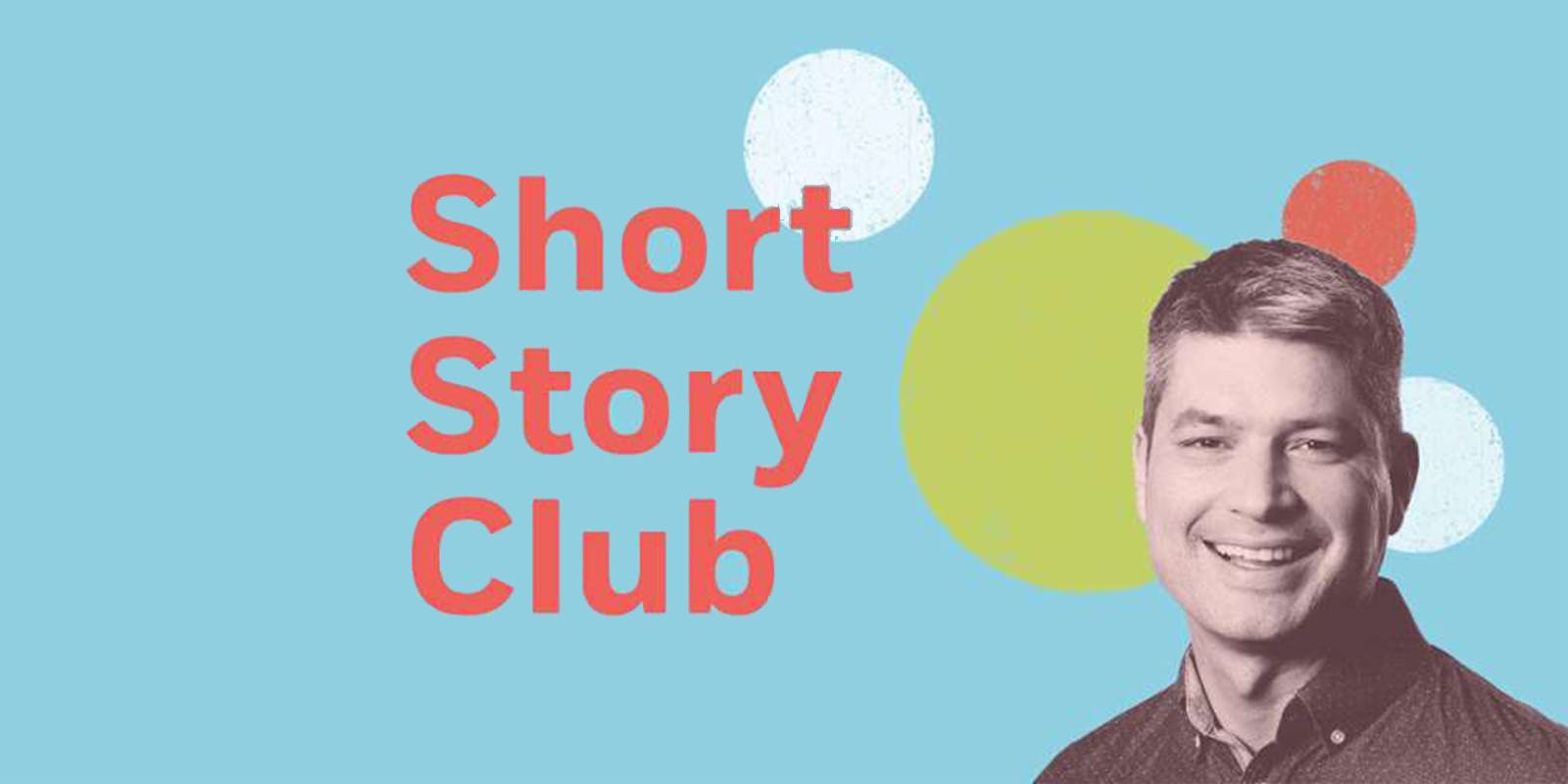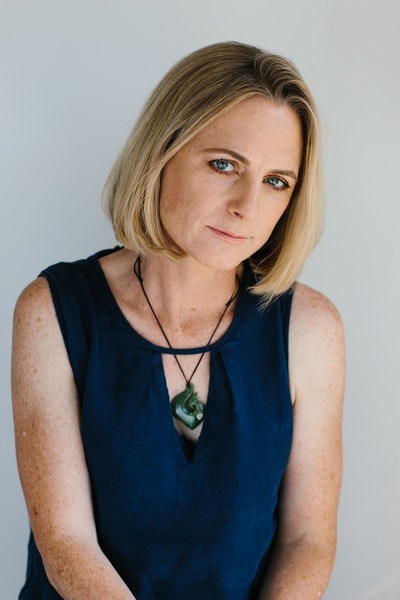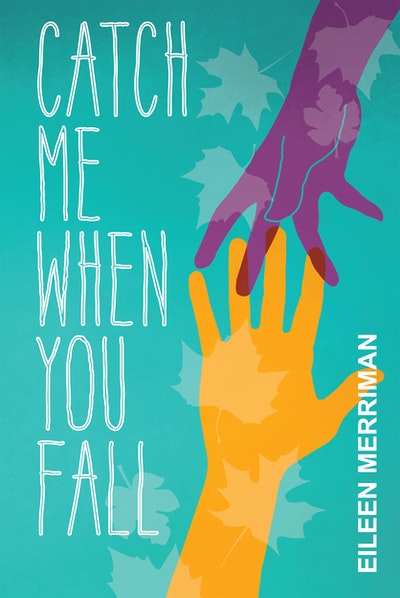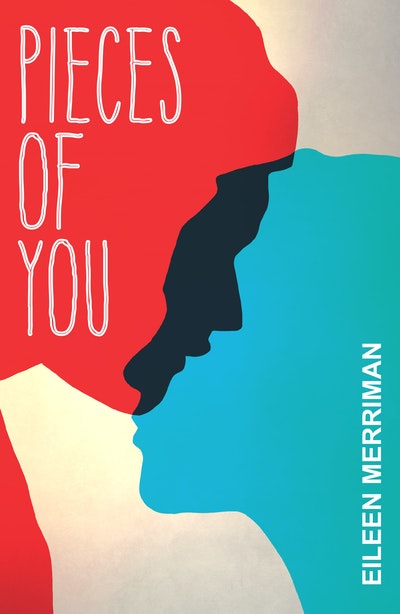Read the story being discussed on Jesse Mulligan’s show on Radio New Zealand on 22 February 2018.
Hummingbird Heart
EILEEN MERRIMAN
The lights on the medical ward had been dimmed. His eyes kept trying to close but then his pager would buzz, like a mosquito in his ear.
Mr Edwards chest pain Ward 5 . . . two IVs needed on Ward 10 . . .
Soon he would start to disintegrate, skin-bone-plasma. Perhaps, in the morning, the cleaners would just find a pager sitting in a puddle of primordial soup.
He was about to push the double doors open when he saw the label to his left. Mrs Turner. He had spent the last three nights trying to make her pee. The nurses were driving him crazy, ringing him every two hours to tell him that Mrs Turner’s urine output was only twenty mils an hour. They didn’t care about his crappy urine output. All he’d had to drink for the last seven hours was half a cup of coffee.
He hesitated, walked into her room. The woman lying in the bed looked like many of the other patients he had seen over the past three evenings. Redundant folds of pastel skin, limp grey hair, sour old-person scent.
He sank onto the closed lid of the commode beside her bed, ignoring the faint stench of expelled waste, and closed his eyes. Ghost-voices echoed in his head.
Low sodium — got pissed and fell over — are you listening, Tom, it’s our anniversary today, don’t tell me you forgot?
Something touched his knee. It felt like bones. He started, opened his eyes. Mrs Turner took her hand off his leg.
‘Are you the doctor?’
‘Um, no.’ His hand bumped against his stethoscope. ‘I mean yes. Sort of. Can I help you?’
Mrs Turner leaned towards him, her milky breath wafting into his nostrils. ‘I don’t want to be here.’
He blinked. ‘Me neither.’ He cast his eyes towards the room opposite, where a man had died earlier that evening. Perhaps he could steal into the empty room and resume his nap.
Mrs Turner frowned. ‘You’re just a baby. How old are you?’
He cleared his throat. ‘Twenty-four.’
‘Huh.’ Mrs Turner pressed a button on the remote beside her bed. The overhead light flickered on, illuminating her narrow face. ‘I’ll tell you what I want,’ she said, staring at him with eyes the colour of weak tea. ‘I want to die.’
‘Me too.’ He put his hand to his forehead. Did I just say that? He didn’t really want to die. He just didn’t want to be awake.
‘Um, what’s the problem? Are you in pain?’
Mrs Turner threw her blankets back. Her sausage-like legs were oozing fluid, as if someone had just pricked them with a fork.
‘Look at me. I’m old. My legs are so full of water I can hardly walk. I get pain in my chest every time I try to walk out of my front door.’ She leaned forward. ‘And sometimes I don’t know where I am. That’s just about the scariest feeling in the world.’
He bit his lip. ‘That does sound pretty scary.’
‘I’ve lived my life,’ she said, her voice trembling. ‘My body’s worn out.’ She fingered the IV cannula sticking out of her left wrist. ‘You can inject me through here. Put me to sleep, for good. What do you say?’
He shook his head. ‘Euthanasia’s illegal. You know that, right?’
Mrs Turner stared at him. ‘You doctors think it’s all about saving lives, don’t you? That makes you feel good, doesn’t it?’
‘I don’t know. Sometimes.’ He glanced out of the window. The sky was lightening, blue-grey. The heart attacks would start rolling in soon, right when his energy was at its lowest ebb.
He stood up. ‘Maybe it’ll seem better in the morning.’
Mrs Turner’s papery voice trailed after him. ‘Just think about it, doctor. That’s all I’m asking.’
That was Tuesday morning.
Tuesday night. The patients were lined up in Emergency like peas in a pod. Chest pain, query meningitis, confused, shortness of breath. Three nights to go, oh God, he wanted to slit his wrists.
The afternoon shift doctors smiled as they handed over. They were going home to bed. He had twisted in his sheets all day, too-hot-hungry-thirsty-did-I-get-the-drug-dose-right-what-if-that-kid-had-meningitis-after-all.
There was a black fog spreading through his head. He couldn’t face listening to any more problems.
You don’t listen to me anymore. I know you work long hours but you could try to be a little happier sometimes. Tom? Tom?
He gave the Query Meningitis a horse-dose of antibiotics and lined her up for a lumbar puncture, then took a rambling history from the Chest Pain.
Why can’t you tell me when your chest pain started, or how long you’ve had it? It’s your pain.
The ward started calling him. Pain relief — IV line on Ward 3 — can you see this patient, she’s not right.
What do you mean, not right?
I don’t know. She’s just . . . not right.
It was Mrs Turner. He listened to her failing heart and her wheezy chest. He pressed on a sausage-leg with his thumb, and left an indentation behind. I was here, he thought, and was assailed by a new wave of melancholy.
He perched on the end of her bed. ‘Have you got pain anywhere?’
Mrs Turner tapped her index finger against her head. ‘In here.’
‘I’ll get the nurses to give you some pain relief, then.’
‘It’s not that sort of pain.’ She slumped back against her pillows. ‘Are you married?’
Tom shook his head. ‘No. But, I’ve got a girlfriend.’
Where is this going, Tom? Maybe I’d like to get married, have some kids, even. Is that such a scary concept for you?
‘My husband died last year.’
‘I’m sorry to hear that.’ He needed to go. He had three more patients to admit, a growing list of jobs. Still, he lingered.
‘We never had any kids. Not for lack of trying, mind you. But we were blessed to have each other.’ Mrs Turner tugged at the neck of her hospital-issue nightie. ‘He gave me this.’
Tom swung the bedside light over, so it was shining on her upper chest. ‘A tattoo,’ he said, not bothering to hide his surprise. He squinted at the tiny winged shape, inked in green and blue and red. ‘What kind of bird is it?’
‘A hummingbird.’ She smiled. ‘Their feet are so tiny they can’t walk on the ground. Did you know that?’
‘I didn’t know that.’ He smiled back, felt a clearing in his head. ‘It’s beautiful.’
‘I used to have little feet too. I was a ballet dancer, can you believe it?’ She plucked at the folds of skin on her neck. ‘Look at me now. Everything’s loose and wobbly.’ She fixed him with her tea-eyes. ‘People. That’s what life is about.’
‘You can still be lonely,’ he said. ‘Even when you’re surrounded by people.’ His pager was buzzing. He turned it off.
Mrs Turner took his hand. ‘You need to listen. You’ll be amazed what you hear.’
Tom blinked. ‘I listen.’
Mrs Turner squeezed his hand. ‘No one ever asks me what I want. They just do things to me. I don’t feel like this body even belongs to me anymore.’
Tom looked at her then, really looked at her. He looked at the delicate hummingbird, situated just below her clavicles. He looked at her once-tiny feet, now blown up like balloons.
He looked into her eyes. ‘I think I can help you.’
The following evening he walked into the Emergency Department to find that there was only one patient to see, a service station worker who had been hit over the head with a cricket bat. His scalp had split open like an over-ripe grape.
‘I didn’t even see it coming,’ the man said.
‘I hope the police are after him,’ Tom said, injecting local anaesthetic into the wound. ‘Or her.’
He was just tying the last suture when the telephone operator paged him to tell him his girlfriend had called past to drop off his cell phone.
Tom charted some pain relief, walked around to the hospital reception to pick up his phone. It was sitting in an envelope, along with a note.
Thought you might need this. Also, your mum wondered if you could call her if you get a chance. Michelle x.
Tom slumped against the wall. The telephone operator snapped her gum at him.
‘You OK?’
‘I’m fine,’ he said, staring at his phone. It was still the third of November, for half an hour anyway.
He called his mother.
Then he walked up to the medical ward, his mother’s words echoing in his ears.
You forgot, didn’t you? Your father’s only been dead two years, and you forgot.
Mrs Turner was gurgling when Tom walked into her room, like a blocked drain. Her bedside light was on, but her eyes were closed.
He sat in the chair beside her bed and tipped his head back against the wall. Someone was groaning down the corridor. The midnight melancholy was creeping up on him again.
Someone should do ban doing seven night shifts in a row. I think I’m clinically depressed.
‘Doctor Tom.’
Tom opened his eyes. Mrs Turner’s chest was rising and falling, so fast.
He sat up. ‘I thought I’d ch-check up on you,’ he stammered.
‘That’s very good of you.’ She stretched out an arm. In the insipid glow of the lamp he saw the bruises staining her skin, like ink blots.
‘Did they take blood off you today?’ He let her take his hand. Her fingers were very cold.
‘Not today.’
‘That’s good.’ He had torn up the blood test form before going home that morning. ‘I crossed the antibiotics off your chart.’
‘I’m so glad.’ She closed her eyes. ‘I had a dream today. About my husband. We were sailing around the Pacific Islands in our yacht, just like the old days. He called her Pukeko.’
‘He must have liked birds.’
‘He loved birds,’ Mrs Turner said, her speech punctuated by rapid, bubbly intakes of breath. ‘And children. He would have made a good father. Do you get on well with your father?’
‘We got on very well,’ Tom said haltingly.
I didn’t forget, Mum. I just didn’t want to remember. Does that make sense?
‘And now?’ Her breathing faded out, faded in.
‘I’ll light a candle for him,’ Tom said. ‘When I go home.’
‘Ah,’ Mrs Turner said. Then she didn’t say anything else for a long time, and neither did he.
Eventually, his pager starting emitting a series of panicked beeps. It was a triple-7, a respiratory arrest. He ran down to the Emergency Department and blew air into a forty-year-old’s stiff, asthmatic lungs with a bag and mask until the anaesthetist arrived.
The man died anyway, eight hours later.
Tom certified him dead. Then he went home and cried.
On Thursday night he admitted a steady stream of patients, until they turned into a big conglomerate in his head. Emphysema-heart-failure-pneumonia-heart-attack-ectopic-pregnancy-asthma-attack.
It was after six before he made it up to the medical ward. His legs felt as if they were full of sand. He thought about how in two hours’ time he’d be driving home with the morning sun searing his eyeballs and the radio turned up high so he didn’t fall asleep at the traffic lights. Michelle would have left for work, but he would climb into bed and inhale her trapped scent until he drifted into a dreamless sleep.
He thought Mrs Turner was dead at first. Then she took a deep, bubbly breath, and the seesaw motion of her chest started up again. He sat on the end of the bed,
gazed out of the window. The first red light of dawn was bleeding into the sky.
‘Doctor Tom.’ Mrs Turner’s voice sounded as if it was coming from very far away.
Tom looked back at her. ‘How are you feeling?’
‘My heart is going so fast,’ she said, putting her hand to her breast.
Tom took his stethoscope out of his pocket, held it against her chest.
‘One hundred and eighty beats per minute,’ he said, after a moment. ‘That is fast.’
Mrs Turner’s eyes shone at him. ‘A hummingbird’s heart beats up to twelve hundred times a minute,’ she said. And in that moment he saw how beautiful she had been, and a space opened up inside his chest.
She coughed. ‘How about you, doctor? How are you?’
‘I’m OK,’ Tom said, and realised, for the first time that week, that this was true. Perhaps he would take Michelle out for dinner tonight. Perhaps he’d even ask her to marry him.
Mrs Turner smiled, tipped her head back against the pillows. A pulse was fluttering at the base of her throat, and the hummingbird was clearly visible in the pink glow spilling over her chest. It looked as if it was about to spread its wings.
Tom took her hand. He watched as the pulse in her throat began to falter. He watched it until it stopped altogether. Then he leaned forward, and passed his hand over her eyes.
‘Have a good flight, hummingbird,’ he murmured.
Then he walked off the ward, out of the hospital, and into the day.
‘Hummingbird Heart’ © Eileen Merriman
Eileen’s latest novel is Catch Me When You Fall, January 2018















